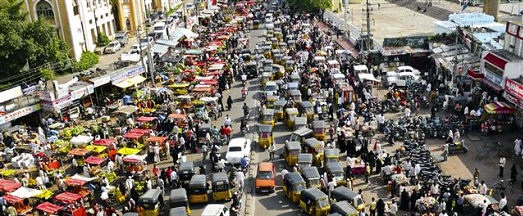By David Cummins, senior vice president and managing director of Parking and Justice Solutions for Xerox
OK, so this may be hard to believe, but people actually do make life decisions such as where to live, work and spend money based on parking availability. This has certainly proven to be true for us Washington, D.C. residents, which is why Xerox has been working with the city on what will be the largest smart parking system in the world when it is complete.
If you been in the D.C. area, you might have noticed that ParkDC is a project that’s been underway for a few years. The first stage of the project has given drivers the opportunity to pay for parking via their smartphones. It’s been incredibly successful. Fifty-six percent of all parking transactions – the highest rate in the U.S. – are being completed via mobile versus credit cards or coins at the meter.
This tells us that the D.C. population is comfortable with smartphone technology, which makes rolling out stage two – helping drivers use their smartphones to access open parking spots – a confident step in the right direction.

The final stage will roll out demand-based or dynamic pricing, which will charge drivers different rates based on the location of their parking spot. Dynamic parking often comes with concerns that all pricing will be raised. However, we’ve found this not to be the case. For LA ExpressPark, a dynamic pricing project, 60 percent of spots had a decline in rates, and only 30 percent increased, which demonstrates the theory behind pricing by demand.
Parking is being transformed in cities all across the country. I recently participated in The Washington Post’s live event America Answers: “Fix My Commute” where Eric Meyer, CEO at Haystack, Rachel Yoka, vice president of Program Development at International Parking Institute and I spoke about how to make parking easier in cities. We covered topics from the disappearance of parking meters and street parking signs, to how parking garages will be gentrified to fit the future, to why Haystack is being embraced by some cities and outlawed in others.
Watch the Video
The Washington Post’s Emily Badger, Xerox’s David Cummins, Haystack’s Eric Meyer and Rachel Yoka of the International Parking Institute discuss the newest schemes and technologies to tackle one of the peskiest problems, parking.
What is your city doing to make parking easier for commuters?
Subscribe to Simplify Work and receive email updates when we publish a new article.



